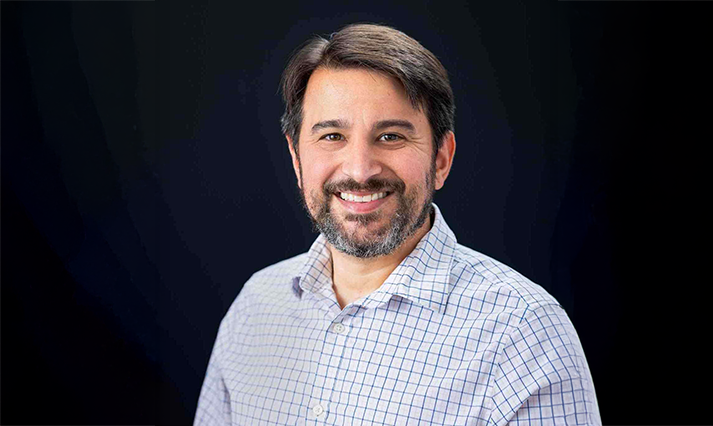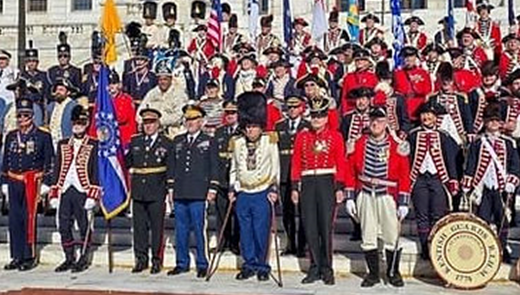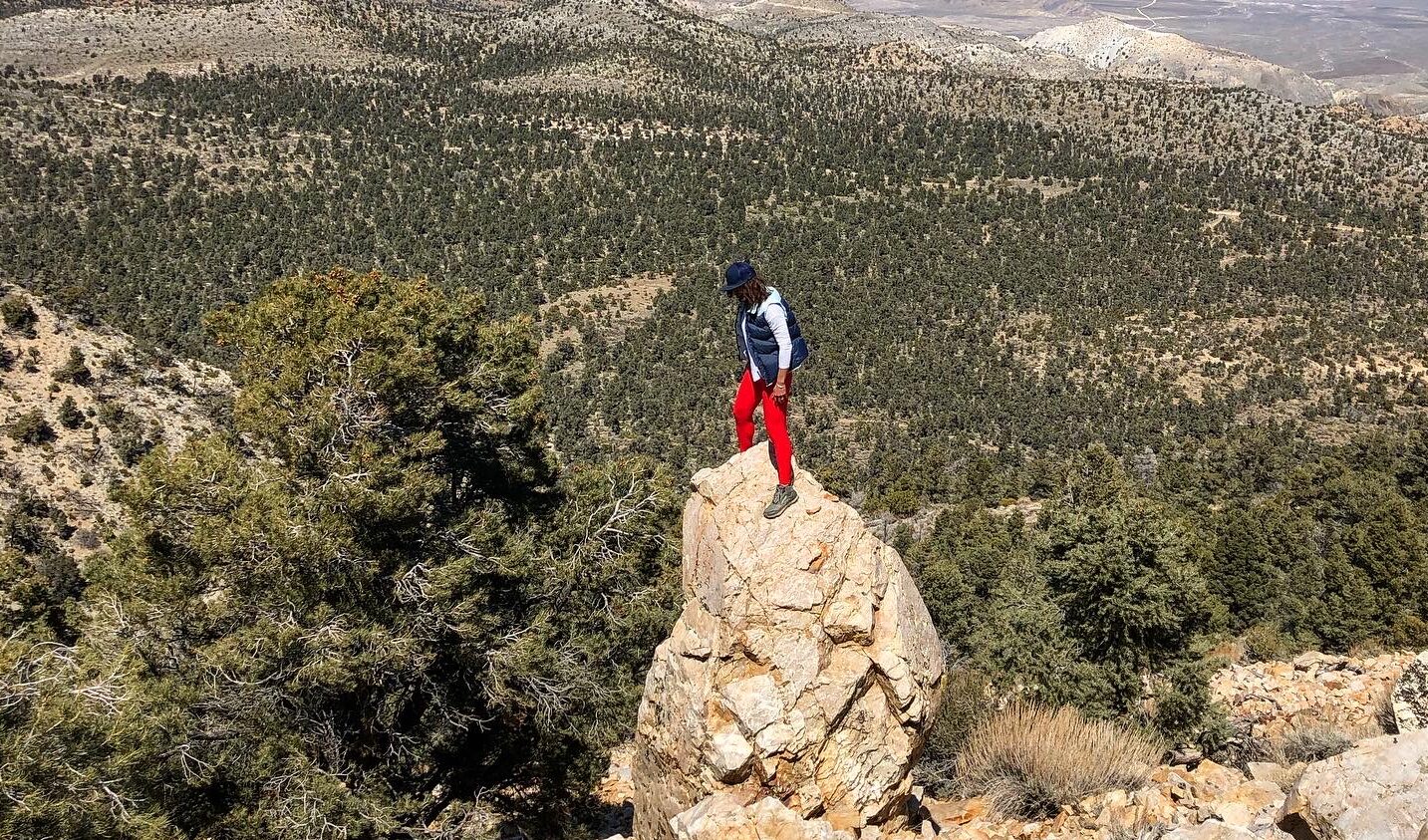This July 4th, amidst the hot dogs and fireworks, let’s talk about what freedom really means. Not the bumper-sticker version you see on trucks, but a messy, foundational kind that seems to get lost in today’s political shouting matches. And by “messy,” I don’t mean the freedom to walk in a Peachtree City Parade free from silly string. I mean a bedrock freedom, right there in the First Amendment, the one that guarantees all the others: the freedom of thought and conscience, and the freedom from a government that will have “no law respecting an establishment of religion, or prohibiting the free exercise thereof.”
The founders knew the poison of mixing church and state because they had a front-row seat to the results. They saw how state-sponsored churches in Europe bred centuries of war, persecution, and bloodshed. They understood that a government powerful enough to enforce a state religion is a government powerful enough to crush any dissent. A government that can force a religion on you is a government that can take your freedom away.
Thomas Jefferson got it right. He championed the idea that your beliefs—or lack thereof—should have zero effect on your rights as a citizen. He didn’t want the government picking religious winners and losers; he wanted a free marketplace of ideas. He understood that faith, if it is to be genuine, must be chosen, not coerced. When religion has to compete for hearts and minds, it becomes stronger, more vibrant, and more responsive to its followers. It doesn’t need a government crutch. That’s why the Constitution explicitly forbids a religious test for public office: it wasn’t an oversight, it was the whole point. Jefferson later wrote that his vision of religious freedom encompasses “the Jew and the Gentile, the Christian and Mahometan, the Hindoo, and infidel of every denomination.”
For that freedom to work, the government must be a neutral referee. This is especially true in our public schools, which are supposed to serve every child—Christian, Jew, Muslim, atheist, you name it. When a school promotes one faith, it tells every other child they don’t quite belong. It turns a place of learning into a place of indoctrination and social pressure. For the kid who doesn’t share the majority belief, it’s a daily lesson in being an outsider. This is a subtle but constant reminder that they are seen as ‘less than.’ This is not the message we want to send our children. Especially if we want them to learn, or succeed, or thrive.
Atheists like myself are frequently accused of possessing a “malleable moral code.” This accusation often comes from individuals who not only use their faith as a weapon to judge others but also conveniently shift their own moral standards to suit their immediate needs. One moment, character and piety is paramount; the next, blatant immorality, corruption, or cruelty is dismissed as “locker room talk,” “just business,” or, worst of all, “only politics.”
I meet a lot of people who, based on their religious and political affiliations, loudly claim a moral superiority. Some politicians wrap themselves in scripture as a shortcut to morality, hoping you won’t notice the disconnect between their words and their actions. They’re wrong, and it’s a dangerous game.
So when any politician suggests that a person’s fitness for public office is tied to their faith, or implies that an atheist is somehow less of a patriot, they are not just being divisive; they are repudiating a core, brilliant principle of our Constitution. This political posturing has a real-world effect. It creates a toxic environment where grace is scarce and judgment is abundant. Wouldn’t it be refreshing if we could just admit we are all flawed human beings and that no political party or religious institution has a monopoly on morality?
It’s equally important to talk about what this freedom is not. It is not a “free pass” (or “trump card” if you will) to just do whatever you want, ignore whatever laws annoy you, or get special treatment. The whole point of our pluralistic society is that we all have to “melt” a little and put up with things that we otherwise would not do.
Another problem with religion being a “get out of jail free” card is that religion can mean anything. This was particularly pointed out to me during our community “discussions” about mask usage in schools. We had a few parents who claimed in their version of Christianity, Jesus didn’t believe in masks. If religious doctrine dictates what to do for current medical decisions, then it is what is too vague and malleable to be a meaningful basis for decision.
We must also talk about how it is often those that advocate for state sponsored acceptance of religion also use it to justify harmful policies that hurt our most vulnerable, just like churches led the way in justifying Jim Crow.
So this Fourth, let’s celebrate the courage to build a nation on a shared commitment to freedom. Let’s celebrate a government that stays out of our souls, so that faith can be a matter of sincere belief, not political performance. Let’s celebrate a country that protects our freedom through a fair and inclusive secular government in which we can all participate equally.
Recommended Articles
The Silent Takeover: How Corporate Investors Are Coming For Fayette County’s Housing Market

The “For Rent” sign on a suburban lawn used to tell a familiar story. Maybe the owners had moved but decided to keep the...
Why the 4th of July Matters

On this day, July 4th, 2025, we pause to honor the bold Declaration that gave birth to our nation 249 years ago—and the ...
The Courage to Stay Curious

When I first arrived in the United States as a teenager, I was armed with two suitcases, a Romanian accent, and one powe...
A scathing view of Jimmy Swaggart and televangelists

I have lived in smaller Southern towns for most of my life. I believe local preachers like the ones in PTC are good peop...
Things to do for the 4th

What’s Up My Eaters! I hope you all have been doing well! Last week, I shared my shrimp ceviche recipe in honor of Natio...
You may also like...
Diddy's Legal Troubles & Racketeering Trial

Music mogul Sean 'Diddy' Combs was acquitted of sex trafficking and racketeering charges but convicted on transportation...
Thomas Partey Faces Rape & Sexual Assault Charges

Former Arsenal midfielder Thomas Partey has been formally charged with multiple counts of rape and sexual assault by UK ...
Nigeria Universities Changes Admission Policies

JAMB has clarified its admission policies, rectifying a student's status, reiterating the necessity of its Central Admis...
Ghana's Economic Reforms & Gold Sector Initiatives

Ghana is undertaking a comprehensive economic overhaul with President John Dramani Mahama's 24-Hour Economy and Accelera...
WAFCON 2024 African Women's Football Tournament

The 2024 Women's Africa Cup of Nations opened with thrilling matches, seeing Nigeria's Super Falcons secure a dominant 3...
Emergence & Dynamics of Nigeria's ADC Coalition

A new opposition coalition, led by the African Democratic Congress (ADC), is emerging to challenge President Bola Ahmed ...
Demise of Olubadan of Ibadanland
Oba Owolabi Olakulehin, the 43rd Olubadan of Ibadanland, has died at 90, concluding a life of distinguished service in t...
Death of Nigerian Goalkeeping Legend Peter Rufai

Nigerian football mourns the death of legendary Super Eagles goalkeeper Peter Rufai, who passed away at 61. Known as 'Do...